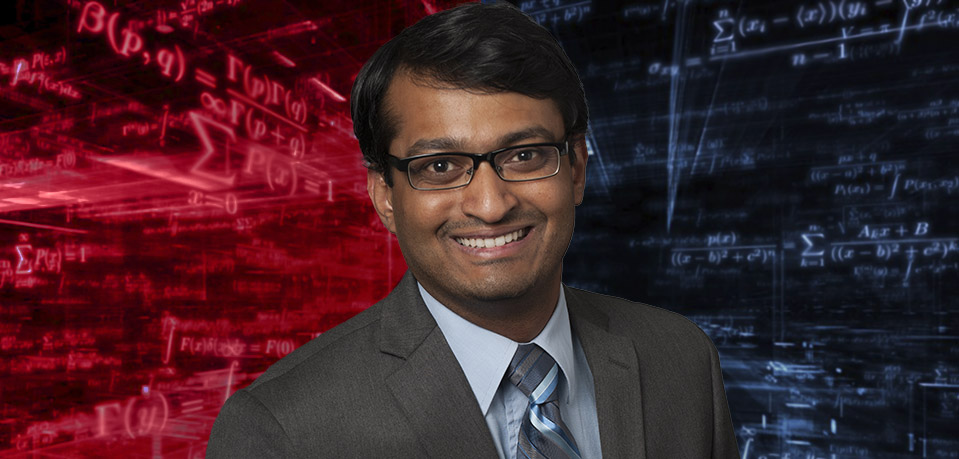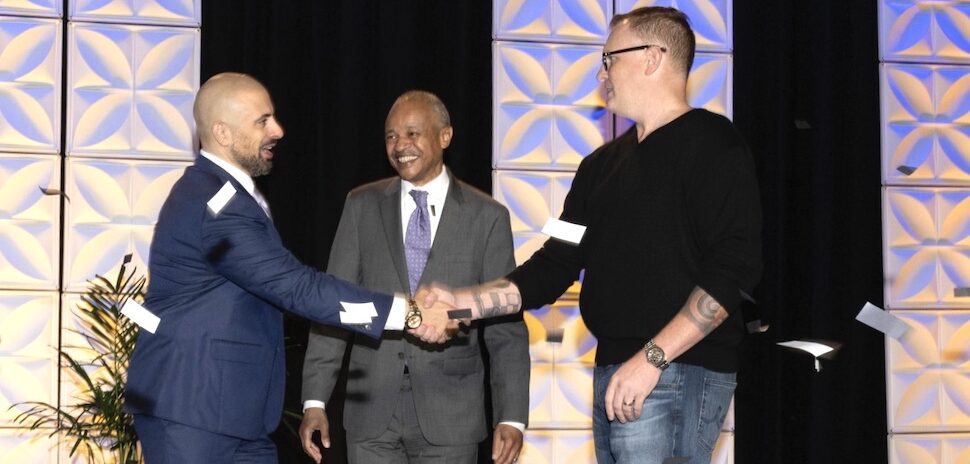Ever since the “big freeze” hit Texas in 2021, exposing problems in the state’s power grid that led to lengthy power outages—and 246 deaths across the state, according to the Department of State Health Services—people have been looking for solutions to ensure a reliable energy supply in the state. Part of that search includes ways to improve how renewable energy sources like wind and solar work with the grid.
Now, SMU professor Harsha Gangammanavar, assistant professor in the Operations Research and Engineering Management Department in the Lyle School of Engineering, is leading a multidisciplinary team including researchers from Ohio State University, the University of Southern California, and Argonne National Laboratory in a $2 million U.S. Department of Energy research project that will address problems in the broad area of computational mathematics for sustainability—such as management of the energy grid under intermittent renewable power.
“Our principal goal is to study randomization-based (stochastic) computational optimization algorithms and new analysis techniques, enabling us to support solutions for problems far beyond our capabilities today,” Gangammanavar said in a statement.
Developing new algorithms for materials design, bioengineering, and power grid applications
SMU’s grant is one of four included in $8.5 million package for basic research in the development of randomized algorithms for understanding and improving the properties and behavior of complex energy. The research is aimed at developing new algorithms for materials design, bioengineering, and power grid applications, SMU said.
“Innovative approaches are needed to accelerate the time to solution for a wide range of challenges in science and energy research. The development of randomized and other classes of algorithms is important for enabling scientific advances and high-performance computing,” Barbara Helland, DOE associate director of science for Advanced Scientific Computing Research (ASCR), said via the grant announcement,
The ASCR program coordinates research based on high-performance computing to solve the nation’s most pressing energy, climate change, and human health problems, SMU said.
Team will use SMU’s high-performance computing system
Gangammanavar’s team will use SMU’s high-performance computing system, specifically enhanced with an NVIDIA DGX SuperPODTM, as well as the supercomputing resources at Argonne National Laboratory to assess the performance of randomized algorithms and ultimately implement those compatible with a high-performance computing environment. The NVIDIA DGX SuperPOD is an AI data center infrastructure platform that enables IT to deliver performance without compromise for every user and workload.
“Dr. Gangamanavar’s ability to marshal a multidisciplinary team of researchers from several universities while leveraging SMU’s capabilities in data science and supercomputing is a sterling example of SMU’s commitment to generate research with impact,” SMU Provost Elizabeth G. Loboa said in a statement. “The contributions his team will make as a result of this grant will address real-world challenges, both now and into the future.”
News comes during SuperCompute 2022 Conference in Dallas
SMU’s announcement comes during a week when Dallas is the epicenter of the supercomputing world. The annual International Conference for High Performance Computing, Networking, Storage, and Analysis—known this year as SC22—began Sunday and is being held through Friday at the Kay Bailey Hutchison Convention Center in downtown Dallas. Over 200 sessions are being presented this week representing “countless learning experiences” in high-performance computing. For more info, go here.
![]()
Get on the list.
Dallas Innovates, every day.
Sign up to keep your eye on what’s new and next in Dallas-Fort Worth, every day.


































































